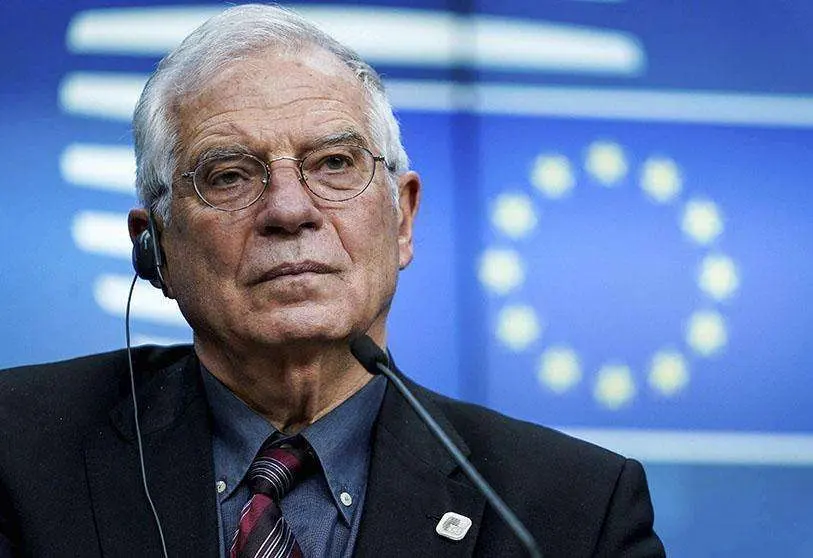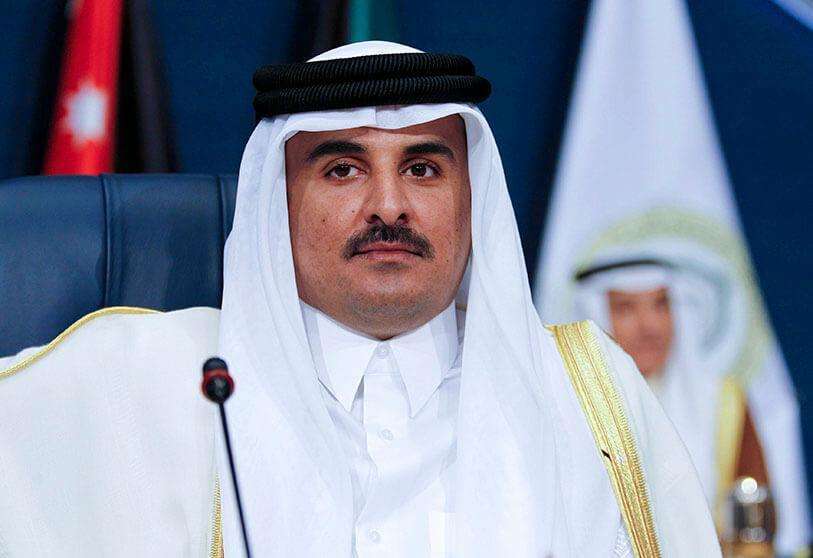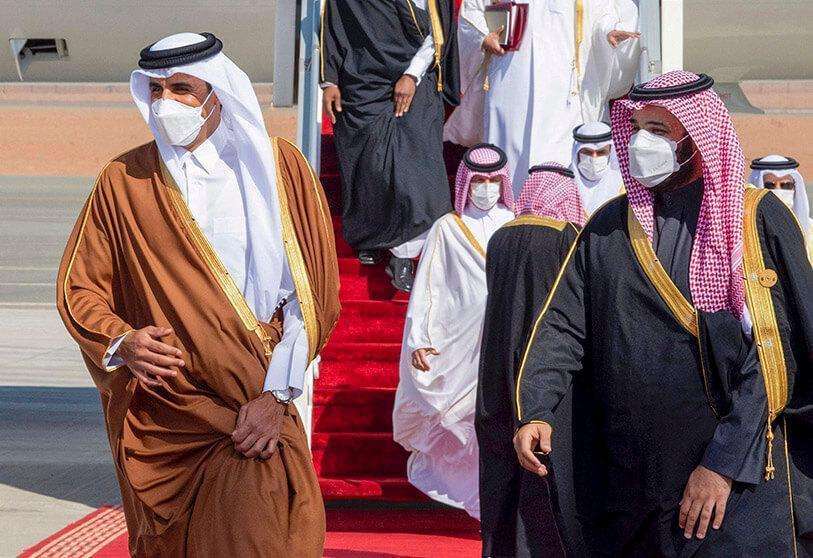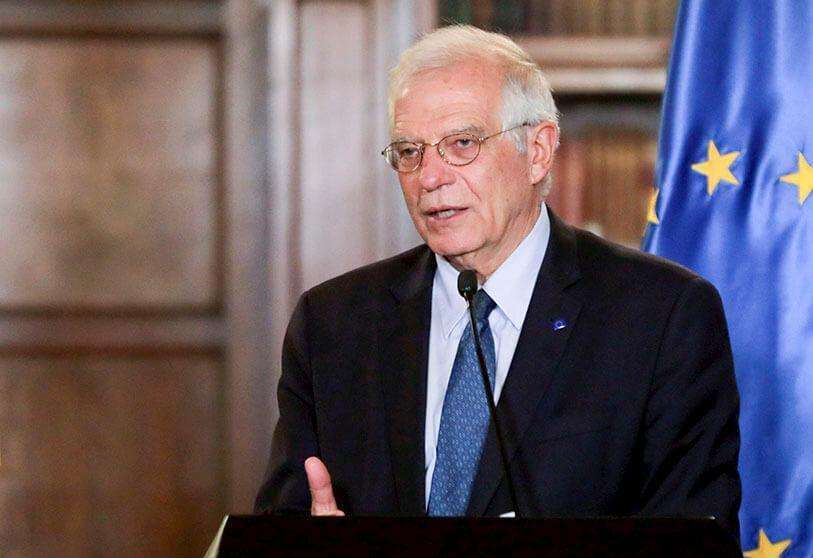EU looks to Gulf after Washington's step backwards

The European Union is perhaps at its lowest ebb. Not internally, where the response to the COVID-19 crisis poses great challenges for the future, but externally, where the continent's strategic weight is in a state of advanced decay. Europe's role on the geopolitical chessboard went into crisis a decade ago with the outbreak of the Great Recession and received a severe setback with the consummation of Brexit in 2020. The main challenge now is to counter the Aukus, an alliance that dilutes cooperation on both sides of the Atlantic.
The EU's High Representative for Foreign Affairs and Security Policy, Josep Borrell, seems to have read the situation and did not want to miss the opportunity to redirect the EU-27's external action. The Spanish diplomat has this week embarked on a tour of the Gulf, where he hopes to gather support and strengthen strategic cooperation between Europe and the Arabian Peninsula. The recent example of this cooperation has been the crisis in Afghanistan.
Borrell began the tour on Thursday from Doha. In the Qatari capital, the EU's top foreign minister highlighted the "significant transformation" that the region is undergoing, in reference to the timid political progress made by Qatar, which on Saturday will hold its first elections to choose the members who will go on to make up the Shura, a legislative body with limited prerogatives, but which will have the capacity to supervise the government and approve the state budget.

"There is potential to do more together regionally and globally", he stressed from Doha, and assured that the European community wants to "exploit these possibilities". The Qatari regime's discreet openness adds legitimacy to the EU's efforts to reach out to the Gulf monarchies, although only Qatar has taken steps forward. In any case, Emir Tamim bin Hamad al-Zani reserves full powers in the areas of defence, the economy and national security as head of state.
This is the first time Borrell has organised a tour of the Gulf since taking office in 2019. A significant detail that reflects the new regions towards which the European Union intends to project itself. For the diplomat, the reasons that push Brussels in this direction include the 'far-reaching internal reforms' that these countries have been undergoing. All the Gulf monarchies 'have visions of diversified and green economies, less dependent on hydrocarbons. And they are moving towards digitalisation," he said.
For Europe, the current situation represents a great economic opportunity. "Contracts and investment opportunities are at stake, both in the Gulf countries for European companies and in Europe for Gulf sovereign wealth funds, which already own a large part of the EU economy," the diplomat stressed. A reciprocity that benefits both in an uncertain economic context still weighed down by the pandemic.
Along these lines, Borrell highlighted the exponential rise in energy prices in Europe, which continues to break records in Spain, and sought to consolidate Qatar's backing as the world's largest gas exporter: "We are sure that we can count on Qatar to deal with any shortage of supplies".

But the financial sphere is not the only one that comes into play. Cooperation at the geopolitical level is another of the EU's priorities. Lacking its own partners, each member state maintains its own policy of alliances outside the EU-27 according to its own interests. To gain authority, the EU's external position should be cohesive or allied with reliable partners. This may be the case with the Gulf states after Washington has shifted the focus of its external action towards the Indo-Pacific.
"Throughout my tenure, I have begun to discuss these transformations in the Gulf region, and the Middle East in general, with my interlocutors. The transformations are important for Europe, also because they affect the positioning and involvement of Gulf countries in conflicts closer to home, such as Libya and Syria," explained the EU High Representative during a press conference in Doha.
According to Borrell's own statements, the EU is preparing to open a permanent mission in the Qatari capital. Although the diplomat did not specify dates, he indicated that it could be operational by 2022.
"Qatar is a country that plays a strategic role in dealing with the new situation in Afghanistan in terms of facilitating interactions between Kabul and the West", summarised the European foreign minister after meeting with the Qatari foreign minister, Mohamed bin Abderrahman al-Zani, and the emir Tamim bin Hamad al-Zani. For Borrell, the situation in the Central Asian country is disappointing and he has asked the country to exert a strong influence on the fundamentalist group and to set an example to the Taliban "to avoid abuses against women or the misuse of Sharia law".

The head of European diplomacy travelled to the United Arab Emirates on Friday, a day after the launch of Expo Dubai 2020. The second stop of the 'tour' has had some controversy in Europe, as the European Parliament called for a boycott of the European Union's participation in the universal exhibition in the UAE due to human rights violations in the country, however, Borrell assured the EU's presence.
The diplomat has conveyed the EU's commitment to "the UAE's national transformation and economic diversification efforts, in line with our bilateral Cooperation Agreement". Borrell himself expects to discuss these issues during his stay in the region. A stay that will end next Sunday.
Borrell's trip will end with a visit to Saudi Arabia, where he will hold a meeting with several ministers from the House of Saud and also with the internationally recognised Yemeni president, Abdo Rabu Mansur Hadi, who is in exile in Riyadh. On Sunday, to round off his regional tour, Borrell will hold talks with the Secretary General of the Gulf Cooperation Council, Nayef al Hayraf.








